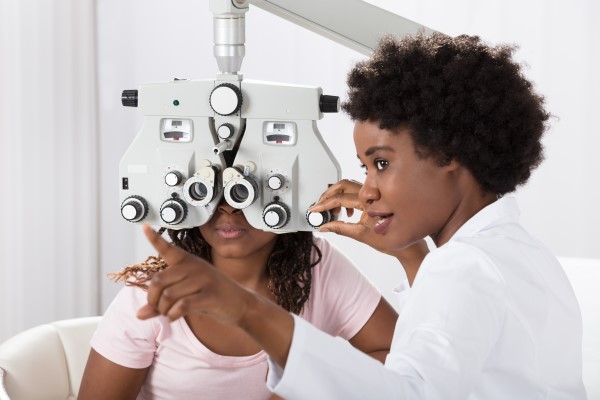How Often Should I See an Optometrist

To keep your eyes in good shape, it is important to see an optometrist regularly. Occasional eye and vision appointments are a critical part of preventive health care. Some eye and vision problems do not have any symptoms and signs so you may not be aware a problem exists. Seeing your eye doctor can help detect problems early and treat them. If you are not sure when to schedule your next eye exam, read on to find out some factors you should consider.
Eye examinations
Getting regular eye care is a vital component of maintaining healthy vision. Patients can benefit from having their eyes examined every one to two years. But depending on several factors a person may need to see an optometrist more often. These include the age of a person and medical history. Diagnosing a problem early can ensure it is treated in good time. This reduces the risk of problems becoming worse and harder to treat later on.
Age
The prevalence of vision disorders and ocular diseases increases with age. People under 40 years of age usually develop vision problems because of eye injuries or refractive errors. The prevalence of eye diseases in young adults is relatively low. But many problems can initially develop without symptoms or signs. Glaucoma can start appearing in this age group. Young adults should see optometrists every two years.
For people aged 40 through 64 years of age, their eyes should be examined at least every two years. Individuals in this age group are at a greater risk of developing eye diseases such as cataracts and glaucoma. People aged 65 and older should get a complete eye examination annually. People in this group are highly likely to develop problems because of their age. Regular visits will help them to maintain good eyesight.
At-risk patients
People who notice and experience symptoms and signs of problems should seek help as soon as any changes occur. Some symptoms that a person should watch out for are blurry vision, the presence of many floaters and light sensitivity, to name but a few. Other symptoms include seeing bright flashes and difficulty seeing at night. These symptoms may be indicators of eye and vision problems. A person with a family history of eye diseases should also see an optometrist frequently.
Systematic conditions can affect a person’s vision. The frequency of examinations can vary because of a patient’s condition. People with conditions such as diabetes and hypertension should be monitored regularly. These conditions increase the chances of developing eye and vision problems. Particular prescription and nonprescription drugs can also harm or affect the eyes.
Schedule your next appointment with your optometrist
Comprehensive eye and vision examinations can help you maintain optimal eye health. The prevalence of some problems is linked to age, particular conditions, race/ethnicity and gender. Regular visits can help in the early diagnosis and treatment of eye and vision disorders. If you are still wondering how often your eyes should be examined, contact your optometrist today.
Request an appointment here: https://www.texasoptical.net or call Texas Optical at (214) 771-7333 for an appointment in our Dallas office.
Check out what others are saying about our services on Yelp: Read our Yelp reviews.
Recent Posts
Dry eye treatment is important when occasional irritation becomes ongoing discomfort that interferes with daily activities. Many individuals experience dryness, burning, or a gritty feeling in the eyes from time to time. However, when symptoms start to affect reading, screen use, or time outdoors, a structured approach to diagnosis and care helps protect comfort and…
Myopia control focuses on slowing the progression of nearsightedness, primarily in children and teens, to help protect long-term eye health and day-to-day vision. Myopia occurs when the eye grows too long or the cornea curves too steeply, which causes distant objects to appear blurry. As the prescription increases, the risk of future eye disease also…
Retinal photography gives optometrists a detailed view of the back of the eye. When done regularly, they are often able to spot early signs of disease before symptoms affect daily vision. This advanced imaging tool helps create a clear record of eye health over time and supports smarter decisions about treatment and follow-up care. Learning…
Red, itchy eyes can affect your everyday comfort and reduce overall well-being. It is important to seek effective vision care from the first sign of irritation. Proper attention to symptoms, underlying causes, and healthy habits ensures stronger long-term eye health and greater day-to-day clarity. Redness and itchiness often stem from several common triggers. These include: Allergic…


